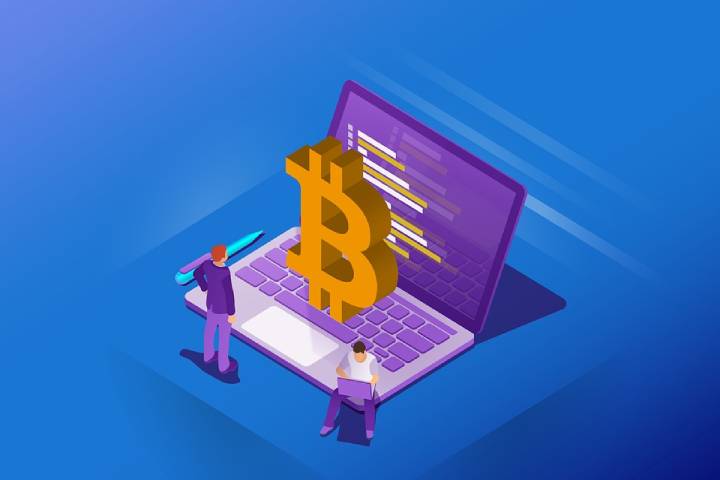Cybersecurity
Meeting point of Cybersecurity and Oil Trading
Protecting digital infrastructure in oil trading has never been more crucial, with the Oil Profit App leading the charge on cybersecurity. Meeting point of Cybersecurity and Oil Trading.

As the oil trading industry becomes increasingly digital, it faces a rising threat of cyberattacks. In this article, we explore the intersection of cybersecurity and oil trading, highlighting the vulnerabilities and consequences of cyber threats on critical infrastructure. Protecting digital infrastructure in oil trading has never been more crucial, with Oil Profit App leading the charge on cybersecurity.
1. Cyber Threats in the Oil Trading Industry
Cybercriminals have recognized the potential value and impact of targeting the oil trading industry. They employ various tactics, such as phishing, malware, and social engineering, to gain unauthorized access to sensitive systems and data. These attacks specifically target the infrastructure supporting oil trading, including trading platforms, supply chain systems, and communication networks.
To illustrate the seriousness of these threats, let’s consider a recent incident where a leading oil trading company fell victim to a sophisticated cyber-attack. The attackers infiltrated the company’s trading platform, gaining unauthorized access to confidential trading data and disrupting critical operations. The repercussions were significant, leading to financial losses, reputational damage, and regulatory scrutiny.
The consequences of cyber attacks in the oil trading industry extend beyond financial losses. Disruption of critical infrastructure can have severe environmental and safety implications. For example, an attack on oil trading infrastructure could result in the manipulation of supply chains, leading to delivery delays or even oil spills. Such incidents can harm the environment, endanger lives, and incur substantial cleanup costs.
Moreover, cyber attacks on oil trading companies erode customer trust and damage their reputation. Clients rely on these companies to securely manage their transactions and protect their sensitive data. A breach of trust can lead to customer attrition, loss of business opportunities, and a tarnished brand image.
The financial impact of cyber attacks on the oil trading industry cannot be understated. A successful attack can disrupt trading operations, leading to financial losses and volatility in oil prices. Additionally, companies may incur significant expenses in investigating and remediating the attack, implementing enhanced security measures, and addressing legal and regulatory requirements.

2. Strategies for Protecting Critical Infrastructure
The world of oil trading is not immune to the growing threat of cyberattacks. As the oil trading industry becomes increasingly digitized and interconnected, it becomes more vulnerable to cyber threats.
To effectively protect critical infrastructure, oil trading companies must conduct thorough risk assessments. This involves identifying vulnerabilities in their systems, networks, and processes. By understanding potential weaknesses, companies can develop comprehensive mitigation plans that address the identified risks. This may include implementing strong access controls, regular system patching, and encryption of sensitive data. Ongoing monitoring and periodic reassessments are crucial to stay ahead of evolving cyber threats.
Employees play a vital role in maintaining a secure environment. Oil trading companies should prioritize cybersecurity training and awareness programs for their staff. Employees should be educated on best practices for password management, recognizing phishing attempts, and handling sensitive data. By fostering a culture of cybersecurity awareness, companies empower their employees to become the first line of defense against cyber threats.
The oil trading industry can benefit from collaboration and information sharing among companies, industry associations, and cybersecurity experts. Establishing partnerships and sharing threat intelligence can help identify emerging cyber threats and develop proactive strategies to mitigate them. Collaborative initiatives can include sharing best practices, conducting joint exercises, and participating in industry-wide cybersecurity awareness campaigns. Together, the industry can build a strong collective defense against cyber threats.
Compliance with cybersecurity regulations is critical for oil trading companies. They must stay abreast of relevant regulations and standards governing the industry. Compliance requirements may involve implementing specific cybersecurity controls, conducting regular audits, and reporting incidents to regulatory authorities. Adhering to these regulations not only helps protect critical infrastructure but also demonstrates a commitment to cybersecurity to stakeholders, including customers, partners, and regulatory bodies.
By implementing these strategies, oil trading companies can enhance their cybersecurity posture and protect their critical infrastructure from cyber threats. It is essential to recognize that cybersecurity is an ongoing process that requires continuous monitoring, adaptation, and improvement. As the threat landscape evolves, companies must remain vigilant and proactive in their efforts to safeguard their operations and maintain the integrity of the oil trading industry.
Conclusion
Protecting critical infrastructure in the oil trading industry from cyber threats is paramount. By implementing robust cybersecurity measures, fostering employee awareness, and promoting collaboration, companies can mitigate risks, safeguard operations, and maintain the integrity of the global oil trading ecosystem.
Cybersecurity
6 Tips to Advance Your Cybersecurity Career In 2023
Cybersecurity is a specialized field. We’ll share some valuable tips to advance your cybersecurity career in 2023

Cybersecurity is a highly in-demand field with a vast scope for growth, opportunities, and scalability. But it’s a technical and sophisticated field. Success in this occupation depends on in-depth knowledge, hands-on experience, relevant skills, and constant improvement. If you’re inefficient in these areas, you might face career stagnation.
Advancing your career in today’s time has become relatively easier, given the plethora of resources and development avenues. Nonetheless, identifying which routes align with your career advancement prospects can seem challenging. If you belong to the cybersecurity landscape, accelerating career advancement might seem time-consuming, but with the right tips, you’ll attain heights of success in no time.
Below, we’ll share some valuable tips to advance your cybersecurity career in 2023:
Table of Contents
1. Advance Academically
Cybersecurity is a specialized field. As such, aspirants are required to go through a lengthy and extensive academic process to set foot in this sector. A bachelor’s degree will enhance your foundation knowledge and skills, including computer science, information technology, security networks, security threats and assessment, and operating systems.
Comparatively, a master’s degree explores the depths of cybersecurity. You’ll learn about security concepts and applications, cyberspace vulnerabilities and threats, cybersecurity laws and policies, defensive cybersecurity technologies, and network and system administration. Therefore, if you want to excel in your career, earning a higher degree, such as a master’s, is crucial.
Advanced education also provides you with an edge, honing essential skills and capabilities essential to your field. If you’re planning to earn a higher degree alongside work, a master in cyber security online program can prove invaluable. Online masters allow you to manage work and academic responsibilities simultaneously. This way, you’ll be able to propel your career advancement without compromising your professional life.
2. Acquire And Refine Practical Skills
Formal education in cybersecurity offers foundational knowledge and enables you to acquire an entry-level job. But higher-level positions require more refinement and training. With bookish knowledge and limited practical exposure, you cannot tackle this complex and evolving field. Even stringent rules and regulations lay infective in this borderless cyber realm.
Cybercriminals and hackers have become intelligent and innovative with their tricks and techniques. They have learned to bypass, dodge, and crack traditional security countermeasures. Studies show that cyber-attacks increased by 38% in 2022 than the previous year. And each passing year heightens the gravity of cybercrime. So, with beginner-level knowledge and less work exposure, you cannot safeguard your organization or protect digital assets.
Upskilling and reskilling are crucial to remain competitive in the cybersecurity field. Problem-solving, risk assessment, network management, information technology, and network penetration and testing are essential skills. Alongside these, security compliance, cloud computing, and ethical hacking are the most in-demand skills for cybersecurity specialists.
3. Learn And Polish Computer Programming Languages
Computer programming for cybersecurity aspirants is as essential as learning a language in school. You must learn to operate and interact with computers to understand, interpret, manage, and prevent security issues.
Basic training starts with proficiency in C, C++, and Java. But complexity increases as you advance academically and occupationally. For expert-level knowledge and a comprehensive grip on your domain of expertise, you must learn HTML, JavaScript, SQL, PHP, Python, and PowerShell. The more diverse your toolkit and skillset, the better you can understand and manage technical issues.

This approach will also diversify your career paths as you interact with clients. So, flex your hands on some coding whenever you have time if you have long-term ambitions. The good news is that you can learn almost all computer programming languages without spending a penny. You can find countless online resources to learn a new coding language from scratch.
4. Participate In Boot Camps
Since cybersecurity is evolving rapidly, constant improvement is necessary to stay updated. So, if you lack expertise in a particular skill or want to expand your horizons, join boot camps for rapid pace training. Boot camps are training opportunities with a practical focus and narrow scope, where you can learn or polish particular skills. You can participate as an instructor or learner. Either way, you can get diverse exposure and learn from other participants.
Information exchange will enable you to widen your knowledge and understanding of cybersecurity, cyberspace threats, and countermeasures. You will answer or listen to the perspectives of newcomers, aspirants, and cybersecurity specialists. Newcomers and aspirants are more keen and curious about the recent developments that even experts can miss. Their curiosity, questions, and knowledge compel you to think from another perspective and bring innovation to your approach or solutions.
5. Earn Relevant Certifications
While not as effective as a master’s degree, certifications still prove worthwhile. Certification courses are a cost-effective approach to acquiring advanced-level knowledge in no time. Certifications enable you to develop a comprehensive profile for an advanced career position or divert your focus to a specific cybersecurity niche.
For instance, with a Certified Ethical Hacker credential, you can boost your career from an entry-level position to a security investigator, forensics investigator, web security administrator, system security manager, or penetration tester. The more certifications you earn, the more possibilities for career growth.
6. Get Industry Exposure
Industry exposure is a prerequisite for almost every profession. Employers ask for practical exposure even for positions like instructor, teacher, content manager, research analyst, or product developer. Survival in a highly technical occupation like cybersecurity is challenging without exposure and hands-on experience. That’s because cybersecurity issues vary from industry to industry and company to company. The security needs of different firms also diverge over time. Some have phishing problems, while others have espionage issues.
Espionage, malware, ransomware, phishing, insider threat, crypto-jacking, or intellectual property theft may come under the cybersecurity umbrella but require different strategies and countermeasures. So, with your limited knowledge and expertise, you cannot be their evergreen problem-solver. You must possess comprehensive knowledge to become an all-rounded expert. Staying glued to your computer screen for better coding skills is not the only efficient way to innovate sustainable security solutions for your clients. You must learn and explore how security threats evolve and refine your skillset accordingly.
Hence, take the initiative and expose yourself to diverse experiences. Collaborate with other specialists and organizations to understand cybersecurity and cyberspace threats in depth. The more you engage, the faster you’ll learn about innovations and challenges in your field.
Conclusion
Since the job market has become competitive, you cannot survive without upskilling and reskilling. Unqualified and unskilled individuals often fail to maintain an edge in such evolving fields. If you seek career advancement, especially in a rapidly transforming field like cybersecurity, you need to focus on skill development. Earning a higher degree, such as a master’s in cybersecurity, is the best, most viable approach to accelerate career advancement. Through a higher degree, you’re able to hone essential cybersecurity skills and remain on top of changing industry trends and norms. Similarly, industry exposure and learning programming languages will also serve in your favor.
-

 Instagram2 years ago
Instagram2 years agoBuy IG likes and buy organic Instagram followers: where to buy them and how?
-

 Instagram2 years ago
Instagram2 years ago100% Genuine Instagram Followers & Likes with Guaranteed Tool
-

 Business4 years ago
Business4 years ago7 Must Have Digital Marketing Tools For Your Small Businesses
-

 Instagram3 years ago
Instagram3 years agoInstagram Followers And Likes – Online Social Media Platform

















